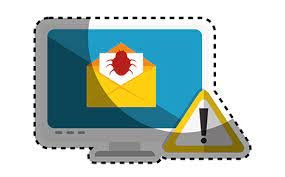Your email is a favorite target of a hacker because it holds a lot of data and more opportunities for cyber attacks. Relying on your service provider and a keen eye isn’t enough, so make sure you invest in good email security software.
Learn how these types of programs improve your security, along with your email provider’s and browser’s security measures. Put them all together, and they go far beyond blocking viruses, warning you about dangerous senders, and making your life easier.
Are your browser and email already protecting you?
Providers like Gmail and Outlook can do things like divert spam to your Junk folder, show you additional information about the sender, and automatically block email from sources you specify. This is decent cyber security.
Different browsers have their own security systems in place to verify the sites you visit and block trackers, including cookies and browser fingerprinting that track online activity. For example, Firefox uses such measures.
Filters are not accurate, sometimes threats are missing or legitimate emails appear as spam.
Scammers can outsource this.
You do most of the action, from checking the sender to setting up rules.
Given how subtle and tech-savvy hackers can be, you need extra help to deal with all the threats. That’s where email security suites that protect your inbox come in to add intelligent and automated security measures.
Let’s take a look at what they do and why you should invest in more than the basic security measures of your email service.
How Email Security Software Scans for Viruses
Hackers use different methods to deliver malware to your device. In an email, they may include a link, image, or file that installs the virus as soon as you interact with it. Some malicious programs that you trigger just by opening the email.
Email scanner software like N-Able’s Mail Assure check inbound and outbound messages for anything suspicious. For example, they can stop a Gmail virus in its tracks, saving you any time you have to deal with it.
How they keep you safe depends on their fast processing and in-depth knowledge of cybercrime. Some products also use machine learning to increase their speed and efficiency.
For starters, the best security programs on the market can detect known hacking techniques and receive information on new threats regularly.
Their scans can pick up clues from emails like hidden algorithms, unverified senders, suspicious IP addresses and scammer behavior patterns. Every update also tries to fix your weaknesses.
Then, the software can alert you, quarantine or delete email, or take any other action you set up. Cyber security services try to protect you and take most of the work out of your hands.
How email security software keeps the inbox safe from infection
Another way an email virus can affect you is by adding malware to your inbox or browser. Therefore, instead of targeting your computer’s operating system, a hacker may prefer to track your activity or information while you are online.
You may receive a fake email from a well-known brand promoting a new app or browser extension. If you install everything that email offers, it can cause a number of problems – including recording login details with a keylogger or even using your email contacts to spread more viruses.
How email security software keeps the inbox safe from infection
Another way an email virus can affect you is by adding malware to your inbox or browser. Therefore, instead of targeting your computer’s operating system, a hacker may prefer to track your activity or information while you are online.
You may receive a fake email from a well-known brand promoting a new app or browser extension. If you install everything that email offers, it can cause a number of problems – including recording login details with a keylogger or even using your email contacts to spread more viruses.
How Email Security Software Marks Messages as Spam
Spam usually comes from marketers, but it can also be used by hackers. Any one of these unwanted messages, which can come in dozens, may contain malware.
Considering how easily you can get a virus just by opening an email, cyber security software will boost your security measures with smart spam filters. They look for messages with suspicious words or origins and send them to spam or junk folders.
While your antivirus program has quarantined them as dangerous spam, you are free to view them.
